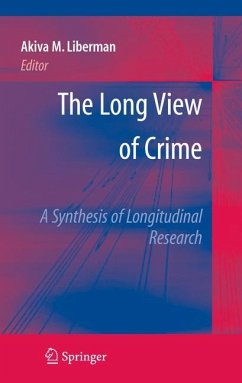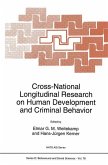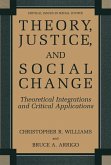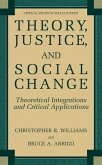Criminology is concerned with many questions which are inherently longitudinal. For example, what is the life-course of criminal behavior? Is there one general offending pattern or multiple offending patterns over time? Which early risk factors, if any, are strongly predictive of criminal behavior? Can early intervention prevent the development of a criminal career?
Longitudinal research allows examination of within-person relationships over time, and allows the examination of developmental sequences and timing. This volume examines longitudinal research in relation to crime and delinquency.
The main body of Longitudinal Studies on Crime and Delinquency is seven reviews, which were commissioned to answer two simultaneous questions: What have we learned from recent longitudinal research on crime and delinquency that (a) we did not know before, and (b) that capitalizes on the longitudinal nature of the data? Topics for review were chosen with an eye to three considerations: (a) a critical mass of studies addresses the question; (b) an emphasis on longitudinal methods; (c) policy relevance of the question.
Three additional chapters include an introduction and overview, an essay reflecting on the findings highlighted in the volume from the broad perspective of the evolutionary ecological theory of crime, and a Future Directions chapter.
The volume also includes an appendix which relates each of the reviews to the body of longitudinal studies reviewed in the volume. This not only shows which studies have informed which topics, but also highlights analytic opportunities that have not yet been explored and where this information could be applied in future research.
Longitudinal research allows examination of within-person relationships over time, and allows the examination of developmental sequences and timing. This volume examines longitudinal research in relation to crime and delinquency.
The main body of Longitudinal Studies on Crime and Delinquency is seven reviews, which were commissioned to answer two simultaneous questions: What have we learned from recent longitudinal research on crime and delinquency that (a) we did not know before, and (b) that capitalizes on the longitudinal nature of the data? Topics for review were chosen with an eye to three considerations: (a) a critical mass of studies addresses the question; (b) an emphasis on longitudinal methods; (c) policy relevance of the question.
Three additional chapters include an introduction and overview, an essay reflecting on the findings highlighted in the volume from the broad perspective of the evolutionary ecological theory of crime, and a Future Directions chapter.
The volume also includes an appendix which relates each of the reviews to the body of longitudinal studies reviewed in the volume. This not only shows which studies have informed which topics, but also highlights analytic opportunities that have not yet been explored and where this information could be applied in future research.
From the reviews: "A Synthesis of Longitudinal Research seeks to capitalize on the rapidly accumulating numbers of longitudinal crime and delinquency studies. ... The Long View of Crime is composed of seven independently authored chapters each dedicated to an in-depth examination of a specific aspect of the adolescent experience as addressed by longitudinal research on crime and delinquency. ... A salient strength of the book is the analysis of the longitudinal method itself. ... useful for the book's target audience of researchers and practitioners." (Stephen E. Tillotson, Journal of Youth and Adolescence, Vol. 38, 2009)









